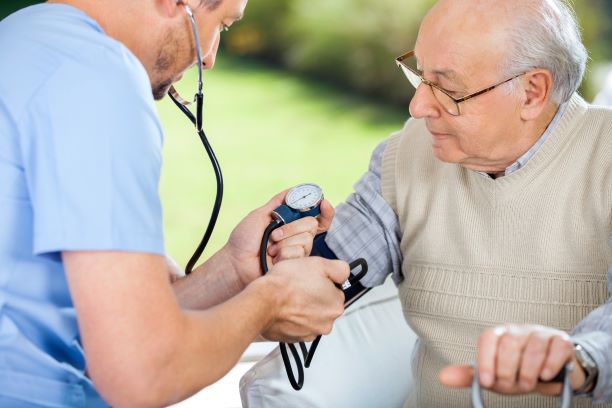Preventative care
Preventative health care is important. Screening programs at your doctors are designed for people without any signs or symptoms. Therefore it is important to keep your doctors appointments for any health checks even when you feel healthy.
Why regular health checks are important
- check for current or early warning signs
- assess your risk of future medical issues
- prompt you to maintain a healthy lifestyle
- update vaccinations.
Health checks for older people
As you get older, keeping an eye on your health becomes more important. Speak to your doctor about:
- abdominal aortic aneurysm screening – former and current smokers (particularly older men) can consider having an ultrasound to screen for abdominal aortic aneurysms, a blood-filled bulge in a major blood vessel in your abdomen called the aorta
- blood pressure screening – every year. If you have diabetes, heart disease, kidney problems, or certain other conditions, you may need to be checked more often
- bowel cancer screening – a simple test for signs of bowel cancer is recommended once every two years if you are over 50
- cholesterol screening and heart disease prevention – every five years if levels are normal. If you have high cholesterol, diabetes, heart disease, kidney problems or certain other conditions, you may need to be checked more often
- diabetes screening – every three years. If you are overweight and have other risk factors for diabetes, ask your doctor if you should be screened more often
- lung cancer screening – for current smokers and those who have quit within the past 15 years
- osteoporosis screening – if you have risk factors for osteoporosis, you should check with your doctor about screening. Risk factors can include long-term steroid use, low body weight, smoking, heavy alcohol use or a family history of osteoporosis
- a physical exam – every year or as recommended by your doctor. Your doctor will check and record your weight, height and body mass index (BMI).
Speak to your doctor about immunisation:
- a pneumococcal vaccine – every 5 years
- an annual flu shot
- a tetanus-diphtheria-pertussis booster every 10 years
- a shingles or herpes zoster vaccine.
Health Checks with other health professionals may include:
- Dental – every 6 months
- Eye test – yearly if you have vision problems or glaucoma risk
- Hearing test – if you have symptoms of hearing loss.
Regular health checks for adults
Regular health checks can help to identify early warning signs of disease or illness. Heart disease, diabetes and some cancers can often be picked up in their early stages, with a more successful treatment plan.
When you have a check, your doctor will talk to you about your medical history, your family’s history of disease and your lifestyle. Your diet, weight, how much you exercise, and whether or not you smoke and drink alcohol or take illegal drugs will also be discussed.
If you have high-risk factors, such as a family history of a condition, it may be more likely that you will develop a particular disease. Regular checks may help your doctor pick up early warning signs.
- If you have a high risk of a particular health condition, your doctor may recommend more frequent health checks at an earlier age.
- Your GP may also recommend other tests based on your family history, your medical history or current symptoms. Depending on the results of those tests, your doctor may then want to provide a course of treatment, investigate further or refer you to a specialist for diagnosis and treatment.
Where to get help
- Your general practitioner (GP) https://familywisemed.com.au
Meet our GP doctors:
References:
Health checks by age: the tests you should be having https://www.hcf.com.au/health-agenda/health-care/treatments-and-procedures/health-checks-by-age-the-tests-you-should-be-having
https://www.betterhealth.vic.gov.au/health/servicesandsupport/regular-health-checks
https://www.healthdirect.gov.au/manage-your-health-in-your-40s

